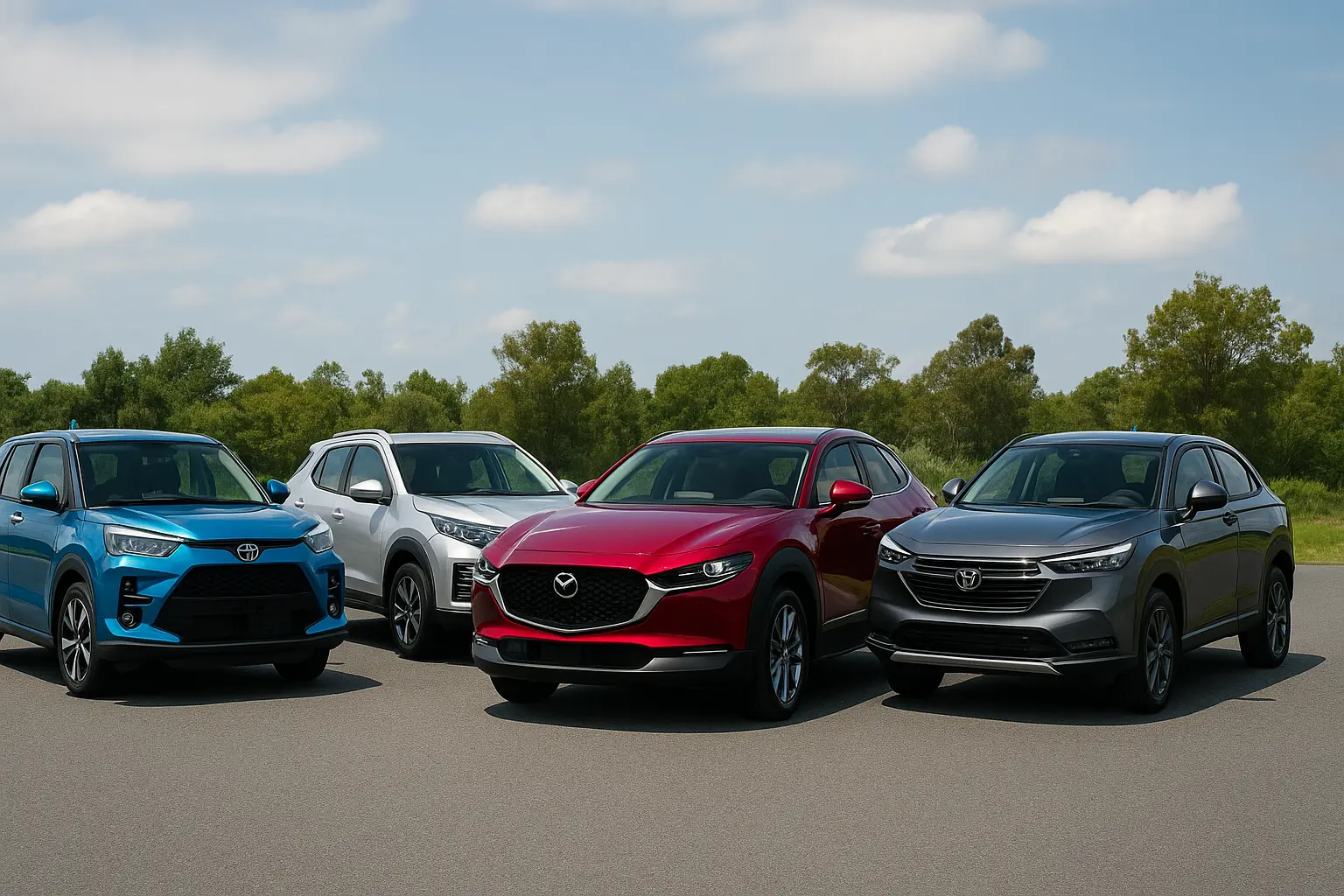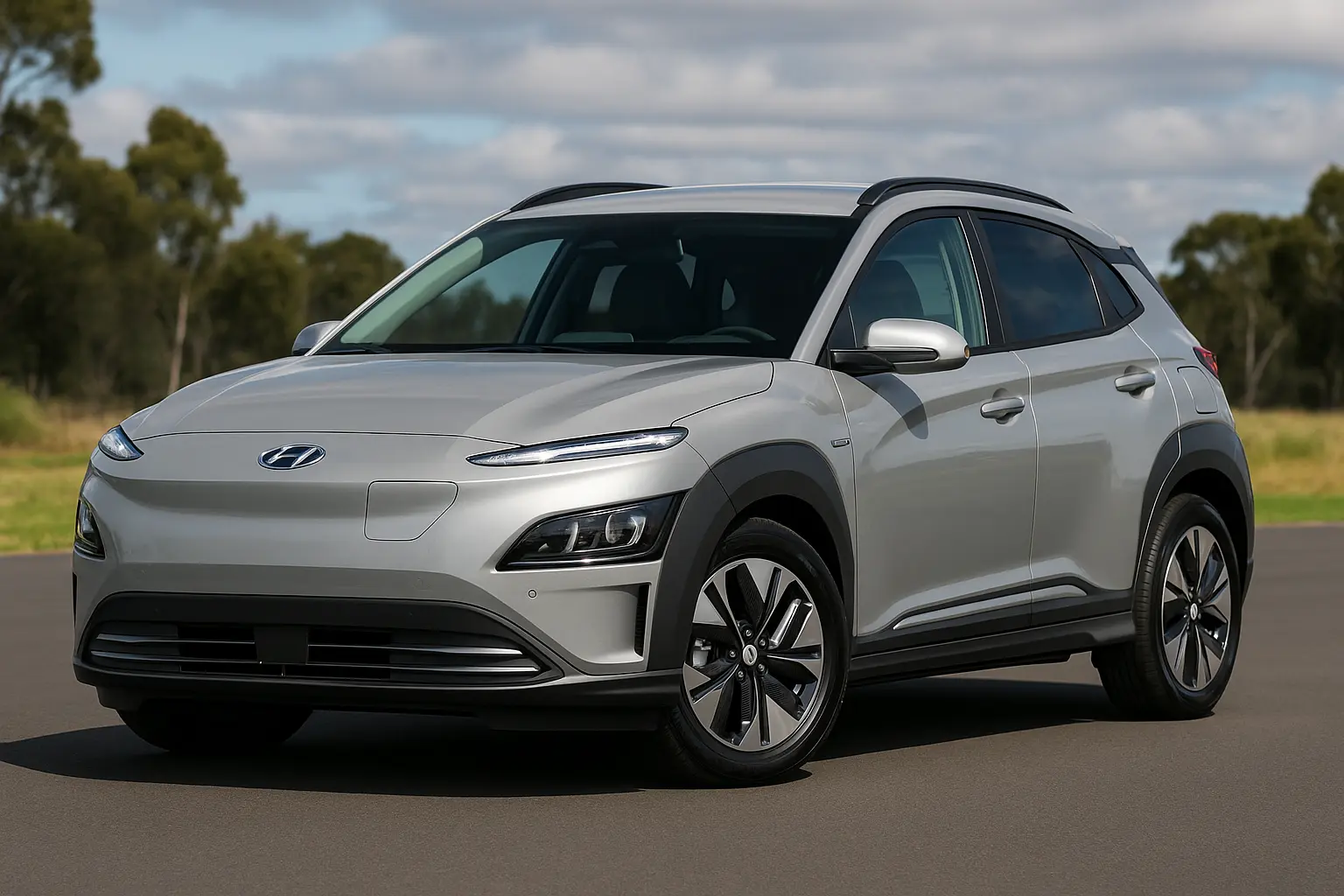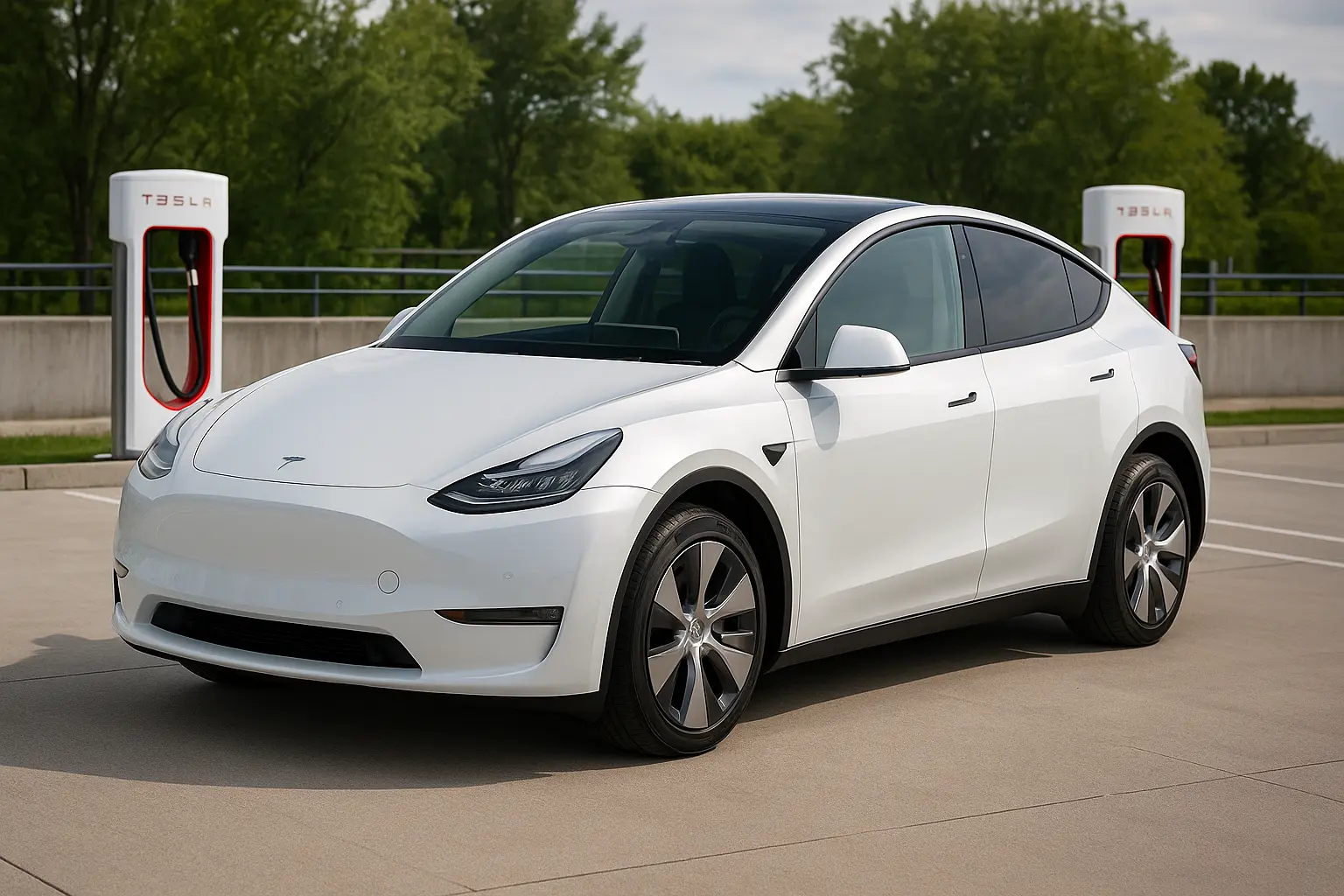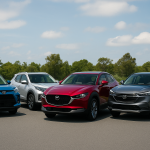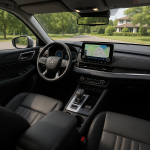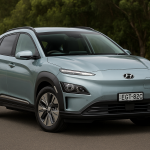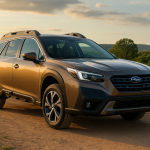In the last decade, small SUVs have gone from being a niche to becoming one of the best-selling vehicle categories in Australia. Buyers are increasingly drawn to compact SUVs because they offer the versatility of a traditional SUV but without the bulky size or excessive running costs. Whether you live in Sydney, Melbourne, Brisbane, or in regional towns where parking is tight and fuel costs matter, small SUVs present a balanced option.
As we move into 2025, carmakers are focusing on efficiency, safety, and practicality. With new hybrid and electric variants, tech-heavy interiors, and five-star ANCAP safety ratings, the latest small SUVs are more appealing than ever. This guide explores the best models available in Australia, their standout features, and why they could be your next perfect family-friendly ride.
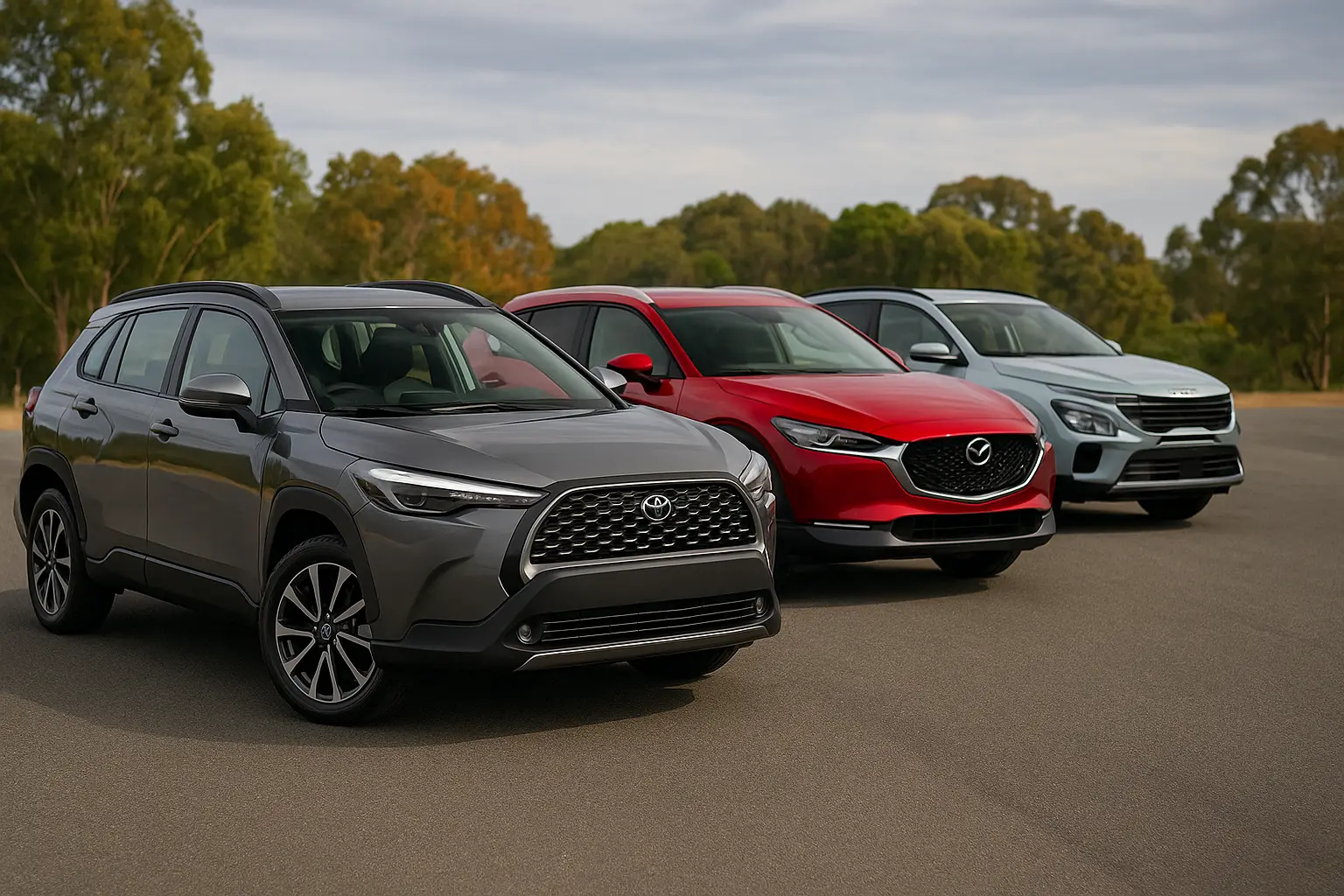
What Defines a Small SUV in Australia?
Small SUVs are compact crossovers that blend hatchback practicality with the elevated driving position of a larger SUV. Typically, they measure between 4.2 and 4.5 metres in length, seating five comfortably. They’re easier to manoeuvre in traffic, offer good fuel economy, and pack in features often reserved for bigger, more expensive models.
Some small SUVs lean sporty, others are more family-oriented, and many now come with electrified powertrains. This flexibility makes them a popular choice among first-time buyers, downsizers, and urban families.
Key Features Australians Look For in a Small SUV
- Efficiency: With fuel prices on the rise, hybrid and efficient petrol engines are in high demand.
- Safety: ANCAP ratings play a big role. Buyers want autonomous emergency braking, lane-keep assist, blind-spot monitoring, and rear cross-traffic alert.
- Technology: Infotainment with Apple CarPlay and Android Auto, digital driver displays, and connected services are now standard expectations.
- Practicality: Boot space, split-fold rear seats, roof rails, and cabin storage can make or break buying decisions.
- Affordability: A small SUV is often a family’s first or second car. Value for money matters.
Best Small SUVs in Australia for 2025
Toyota Corolla Cross
Toyota has long dominated Australia’s SUV market, and the Corolla Cross proves why. Positioned between the Yaris Cross and RAV4, it delivers strong reliability, hybrid efficiency, and safety.
- Engines: Available in petrol and Toyota’s latest hybrid system.
- Efficiency: Hybrid variants can deliver fuel use as low as 4.5L/100km.
- Interior: Practical boot, spacious seating, and Toyota’s new infotainment system.
- Safety: Five-star ANCAP safety rating.
The Corolla Cross is family-friendly, affordable, and ticks all the boxes for buyers prioritising long-term ownership.
Mazda CX-30
Mazda’s CX-30 continues to be a top choice thanks to premium styling and driving dynamics.
- Design: Sleek exterior, with Mazda’s Kodo design language making it look more upmarket.
- Performance: Petrol and mild-hybrid options, known for smooth handling.
- Interior: Soft-touch materials and excellent build quality, comparable to premium brands.
- Technology: Large infotainment screen, connected services, and smart driver aids.
For buyers who want a luxury-like feel without premium brand pricing, the CX-30 is one of the strongest contenders.
Hyundai Kona
The all-new 2025 Hyundai Kona has grown in size, offering more practicality while keeping its sporty design edge.
- Powertrains: Petrol, hybrid, and electric versions available.
- Efficiency: Hybrid versions return excellent fuel savings; EV offers 400+ km range.
- Tech: Twin 12.3-inch digital displays, advanced driver assistance, and connected services.
- Practicality: Larger cabin and boot compared to the outgoing model.
The Kona remains one of the most versatile small SUVs, appealing to tech-savvy younger buyers as well as families.
Kia Seltos
The Seltos has been a consistent hit in Australia thanks to its space and value.
- Engines: 2.0L petrol or turbocharged 1.6L with AWD.
- Interior: One of the largest boots in its class, plus spacious rear seats.
- Technology: 10.25-inch infotainment, Bose sound system in higher trims, and safety tech.
- Price: Competitive pricing keeps it popular among budget-conscious buyers.
For families who need room but don’t want a midsize SUV, the Seltos is an excellent compromise.
Nissan Qashqai
The Qashqai is a long-time favourite in Australia, recently redesigned for 2025.
- Design: Sharp exterior styling, premium-feeling cabin.
- Performance: Efficient petrol engines and hybrid options coming soon.
- Technology: ProPilot semi-autonomous driving and advanced infotainment.
- Practicality: Versatile boot and family-friendly features.
With a reputation for comfort and technology, the Qashqai is ideal for city and suburban lifestyles.
Honda ZR-V
Honda’s new entrant bridges the gap between the HR-V and CR-V, positioning itself as a stylish, tech-focused compact SUV.
- Interior: Spacious seating, premium finishes, and large infotainment screens.
- Safety: Honda Sensing suite standard across the range.
- Performance: Balanced ride, efficient petrol and hybrid options.
- Appeal: Competes strongly with Mazda and Toyota for buyers wanting refinement.
Subaru Crosstrek
Replacing the XV, the Subaru Crosstrek brings rugged capability into the small SUV class.
- Performance: Symmetrical AWD standard across the range.
- Adventure Ready: Roof rails, raised ground clearance, and X-Mode off-road settings.
- Efficiency: Hybrid variant available.
- Safety: Subaru EyeSight driver assistance ensures safety for adventurous families.
This SUV appeals to Australians who enjoy weekend camping, bush trips, or coastal drives while still wanting a compact daily driver.
MG ZS and ZS EV
MG has disrupted the market with its affordable pricing and long warranty.
- Value: Among the cheapest small SUVs in Australia.
- Powertrains: Petrol ZS and fully electric ZS EV.
- Tech: Digital cockpit, decent infotainment, and safety features.
- Appeal: Perfect for first-time SUV buyers or those exploring EV ownership affordably.
Petrol vs Hybrid vs Electric: Which Small SUV is Right for You?
- Petrol SUVs: Lower upfront cost, ideal for budget buyers.
- Hybrid SUVs: Balance of efficiency and convenience, great for city driving.
- Electric SUVs: Zero emissions and lower running costs, but charging infrastructure is a consideration.
Australians in metro areas with access to chargers may lean toward EVs like the Kona Electric or MG ZS EV, while families in regional areas may prefer hybrids like the Corolla Cross.
Safety in Small SUVs: What Matters Most
Modern small SUVs come loaded with advanced driver-assistance systems, many of which are now standard even on base trims. Key safety technologies include:
- Autonomous emergency braking with pedestrian detection
- Adaptive cruise control
- Lane-keeping assist
- Blind-spot monitoring
- 360-degree cameras
With ANCAP continuing to push for higher safety benchmarks, small SUVs today rival larger models in passenger protection.
Practical Considerations for Families
While compact in size, many small SUVs offer surprising practicality:
- Boots between 350L–450L, expandable with split-fold rear seats.
- ISOFIX mounts and rear seat space for child seats.
- Roof rails for bikes, surfboards, or luggage boxes.
- Flat loading floors and powered tailgates in higher trims.
For families with one or two kids, small SUVs are often the perfect balance of space and economy.
The Growing Role of Technology in Small SUVs
Australians expect their cars to be as smart as their phones. Most 2025 small SUVs include:
- Wireless Apple CarPlay and Android Auto
- Digital driver displays
- Over-the-air software updates
- Smart assistants and voice commands
- Connected apps to monitor vehicle health and range
These features make small SUVs not just practical, but future-ready.
Cost of Ownership: Small SUVs in the Long Term
Running costs are often lower than midsize SUVs. Considerations include:
- Fuel economy: Hybrids and EVs save money long-term.
- Insurance premiums: Typically lower than large SUVs.
- Servicing costs: Brands like Toyota, Hyundai, and Kia offer capped-price servicing.
- Warranty: Kia leads with 7 years, while MG also offers long coverage.
This makes small SUVs attractive to budget-minded buyers who still want SUV practicality.
Conclusion: Finding the Best Small SUV in Australia
The best small SUV for you will depend on your lifestyle:
- City drivers: Toyota Corolla Cross Hybrid, Hyundai Kona, or Mazda CX-30.
- Adventurers: Subaru Crosstrek or Honda ZR-V.
- Budget buyers: Kia Seltos, MG ZS, or Nissan Qashqai.
- EV adopters: Hyundai Kona Electric, MG ZS EV, or Polestar 2 (slightly larger).
In 2025, the segment is stronger than ever, offering Australians an impressive mix of efficiency, technology, safety, and practicality.
Leave a comment
Your email address will not be published. Required fields are marked *


